第6章
{Duchesse de Berri = Marie Caroline (1798-1870), wife of Charles Ferdinand of Artois, Duke of Berry, second son of King Charles X;femme de chambre = lady's maid}
At length the happy moment arrived when we were to quit the warehouse of the manufacturer. Let what would happen, this was a source of joy, inasmuch as we all knew that we could only vegetate while we continued where we then were, and that too without experiencing the delights of our former position, with good roots in the earth, a genial sun shedding its warmth upon our bosom, and balmy airs fanning our cheeks. We loved change, too, like other people, and had probably seen enough of vegetation, whether figurative or real, to satisfy us. Our departure from Picardie took place in June, 1830, and we reached Paris on the first day of the succeeding month. We went through the formalities of the custom-houses, or barrieres, the same day, and the next morning we were all transferred to a celebrated shop that dealt in articles of our genus. Most of the goods were sent on drays to the magazin, but our reputation having preceded us, we were honored with a fiacre, making the journey between the Douane and the shop on the knee of a confidential commissionaire.
{Picardie = province of France, north of Evreux; barrieres = gates at the edge of Paris, where local customs duties were collected; magazin =shop; fiacre = a kind of carriage; Douane = customs house; confidential commissionaire = special messenger}
Great was the satisfaction of our little party as we first drove down through the streets of this capital of Europe--the centre of fashion and the abode of elegance. Our natures had adapted themselves to circumstances, and we no longer pined for the luxuries of the linum usitatissimum, but were ready to enter into all the pleasures of our new existence; which we well understood was to be one of pure parade, for no handkerchief of our quality was ever employed on any of the more menial offices of the profession. We might occasionally brush a lady's cheek, or conceal a blush or a smile, but the usitatissimum had been left behind us in the fields. The fiacre stopped at the door of a celebrated perfumer, and the commissionaire, deeming us of too much value to be left on a carriage seat, took us in her hand while she negotiated a small affair with its mistress. This was our introduction to the pleasant association of sweet odors, of which it was to be our fortune to enjoy in future the most delicate and judicious communion. We knew very well that things of this sort were considered vulgar, unless of the purest quality and used with the tact of good society; but still it was permitted to sprinkle a very little lavender, or exquisite eau de cologne, on a pocket-handkerchief. The odor of these two scents, therefore, appeared quite natural to us, and as Madame Savon never allowed any perfume, or articles (as these things are technically termed), of inferior quality to pollute her shop, we had no scruples about inhaling the delightful fragrance that breathed in the place. Desiree, the commissionaire, could not depart without permitting her friend, Madame Savon, to feast her eyes on the treasure in her own hands. The handkerchiefs were unfolded, amidst a hundred dieux! ciels! and dames! Our fineness and beauty were extolled in a manner that was perfectly gratifying to the self-esteem of the whole family. Madame Savon imagined that even her perfumes would be more fragrant in such company, and she insisted on letting one drop--a single drop--of her eau de cologne fall on the beautiful texture. I was the happy handkerchief that was thus favored, and long did I riot in that delightful odor, which was just strong enough to fill the air with sensations, rather than impressions of all that is sweet and womanly in the female wardrobe.
{usitatissimum had been left behind = the species name of linen means "most useful"; Madame Savon = literally, Mrs. Soap; articles = short for "articles de Paris" or Parisian specialties; dieux! = dear me!; ciels! =good heavens!; dames = my oh my!}